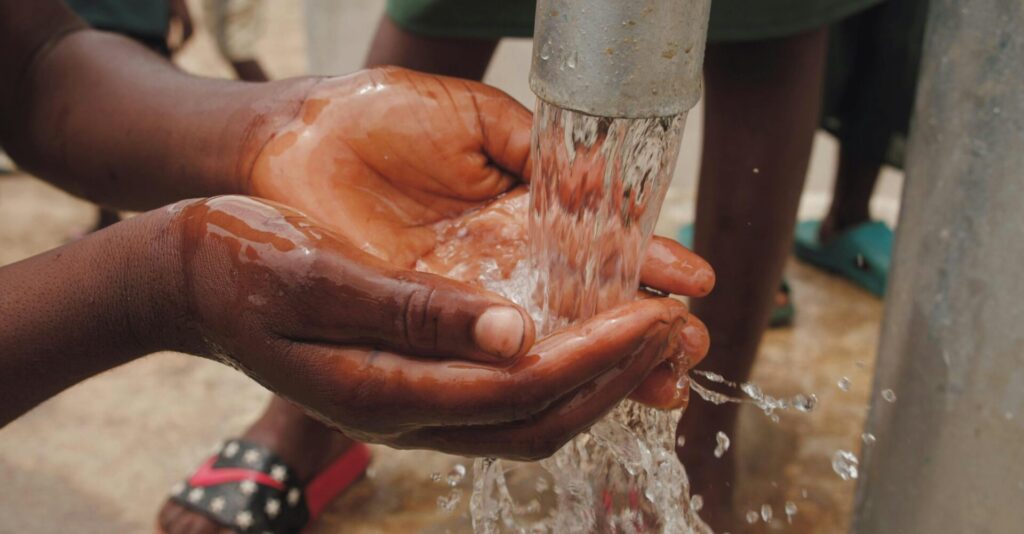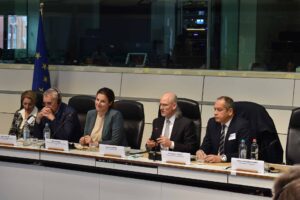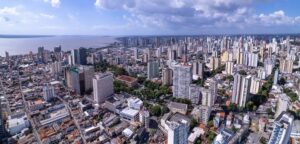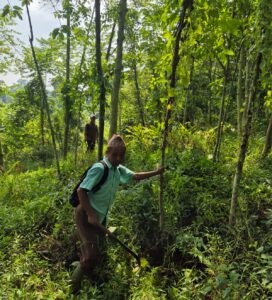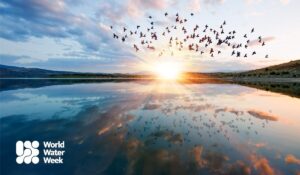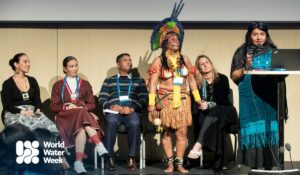Transforming relations through WASH access
Building WASH resilience is about patient efforts to transform relationships that prevent conflicts and – when possible – to create more peaceful conditions.
Peace and conflict-informed strategies
In 2024, SIWI collaborated with UNICEF to support the government of DRC in its efforts to increase the climate resilience of the water, sanitation and hygiene (WASH) sector. World Water Week 2024 was an opportunity for SIWI and UNICEF to present some of the lessons learned from our joint efforts to develop a conflict-informed approach to WASH climate resilience.
In our session “Strengthening the evidence base for risk-informed WASH decision making“, we showed that building resilient access to vital water resources in the face of climate change and conflict requires conflict literacy and creativity. To ensure that actions are informed by strong analytics, we typically assess risks with input from national WASH and climate experts. A peace and conflict-informed analysis increases the scope, sources, and partners in this assessment. The consultation is then widened to include more sectors and professionals in a workshop tasked with proposing new mechanisms and interventions that respond to both climate and conflict challenges.
One of the most inspiring pathways to peaceful relations in WASH communities and resilience was an example shared by Dr Getrude Nsambi in the workshop facilitated by SIWI in July in DRC. As a government official of the Ministry of Health, Dr Nsambi was part of the Programme National Ecole et Village Assainis implemented by UNICEF to provide access to WASH services in rural communities in DRC.
Inclusion drives sustainability
Dr Nsambi recalled that persistent patterns of separation along ethnic lines translated into separated access to WASH services in some communities. “Relations between Indigenous People and the Bantou (non-Indigenous) majority can be difficult at times. Experience has shown us that having a single water point for different ethnic groups can contribute to bringing people together” she said. “The waterpoint needs to be situated in a place that is accessible equitably to all groups of the population.”
“Experience has shown us that having a single water point for different ethnic groups can contribute to bringing people together.”
The management committee that oversees the maintenance of the infrastructure for projects of such nature, is composed of members from both communities, but also of women and young people. “The composition of the management committee must reflect the diversity of the population in the village. This helps mitigate problems in the use and maintenance of the waterpoint”.
Sustainable access to basic services such as water, sanitation and hygiene is one of the key building blocks of peaceful and resilient societies. Yet growing evidence shows that peace is not just about providing clean freshwater. Rather it is about how services are delivered. In fragile contexts such as DRC, fairness in service provision is key to users. Investments to promote inclusion and equity in access to water can contribute to both peaceful cohabitation in heterogeneous communities and strengthen their resilience to climate hazards.

